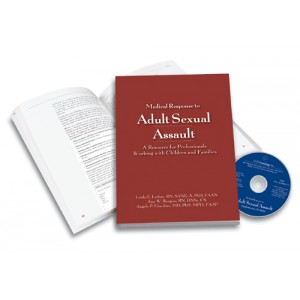THIS GIVEAWAY IS NOW OVER. THANKS TO EVERYONE WHO ENTERED.
 STM Learning has a copy of their clinical text, Medical Response to Adult Sexual Assault, to give away to one FHO reader. All you have to do to be eligible to win is let us know in the Comments section of this post what other topics and/or materials you would like to see published that would assist you in your professional capacity. I will choose one winner at random from the responses at noon ET on Monday, October 14th, so be sure to get your answer in before then.
STM Learning has a copy of their clinical text, Medical Response to Adult Sexual Assault, to give away to one FHO reader. All you have to do to be eligible to win is let us know in the Comments section of this post what other topics and/or materials you would like to see published that would assist you in your professional capacity. I will choose one winner at random from the responses at noon ET on Monday, October 14th, so be sure to get your answer in before then.
About the book:
Sexual assault remains one of the most problematic and controversial issues in law, medicine, and in society at large. Following the outcry against recent scandals, it has become even more important that medical, law enforcement, legal, social service, and other professionals possess comprehensive knowledge on all issues pertaining to rape, assault, sexual exploitation, and the exam findings of each.
Table of Contents:
1. History and Overview
2. Basic Anogenital Anatomy and Human Sexual Response
3. Body Injury and Dynamics of Sexual Assault
4. The Sexual Assault Exam: Components and Documentation
5. Biological Evidence: Collection and Use in Courtroom Testimony
6. Complications of Sexual Assault: STI and Pregnancy
7. Male Victims
8. Suspect Exams
9. Victim Impact and Recovery
10. Psychobiology of Trauma: Impact on Memory and Response
11. Education and Qualifications of the Sexual Assault Examiner
12. SART Operation
13. SART in the Military
14. Rape on Campus
15. Drug Facilitated Sexual Assault
16. Intimate Partner Violence
17. Human Trafficking
18. Elder Sexual Assault
19. Sexual Homicide
20. SANE-SART Evalutation


29 replies on “New Giveaway: Medical Response to Adult Sexual Assault”
I would like to see more research, information on age specific considerations in SA, especially as it pertains to the 12-17 year old population. Although this age group usually falls into the Adult/Adolescent realm, the way that a 13 year thinks and processes information is dramatically different than the way a 28 year old does. While we alway work toward individualizing care, critical thinking is difficult and necessary to provide this half child/half adult population appropriate care.
I’d love to see a “Global Issues and Updates” with information about what’s happening in our profession worldwide: Africa, Europe, Asia …. !! What are the challenges, the successes, the news stories, and the folks out there making a difference globally.
I enjoy reading all your posts. Keep up the excellent work. More info on legal issues would be good.
I would love to have more info on the latest interview techniques with sexual assault patients. I think the recent info from Russell Strand will have a huge impact and I am trying to figure out how to incorporate the info and change my practice.
I would like to see more information on collecting evidence from male patients who are assaulted and also collecting evidence from suspects.
I would like to see more on the interviewing of pediatric patients. What questions might be construed as “leading”? How can we phrase our questions in the best way? Is it better to have the FNE interview, or the interview specialist, or both? What about timing? I am concerned when we have pediatric pts in the ED waiting for long periods, particularly if they have been pc’d. Thank you!
I would like to see some info on women or men in the sex trade or prostitution , who are continuously having unprotected sex in their craft but when unfortunately are sexually assaulted request and are offered HIV PEP, only continue to return to their craft and once again have high risk unprotected sex.
I would like to see more about DFSA. We have had a huge rise in this in our area. It’s nice to see lit on it!
I would like to see information on program sustainability and SANE retention ideas. I also always enjoy tips on court testimony and expert witness issues. Lastly, anything to do with new developments in evidence based practice pertaining to SANE.
I would like to see more information on the neurobiology of sexual assault trauma.
Medical Response to Adult Sexual Assault: Did they correct the error on their diagram, on page 15, regarding the Fossa Navicularis, which is drawn on the hymen?
I think it may be useful to have a compilation of good verbiage and phrases to incorporate into our documentation. I see this as a means of doing some education for the legal system. If we as SANEs could document in such a fashion as to make clear that we are not an arm of law enforcement and we do actually have a medical need to know a variety of information from our patients in order to properly assess and care for them, then as cases get passed up the ladder of courts, we could educate judges and etc.
I am interested in the incidence of sexual violence during natural disasters and how a community can plan a prevention strategy for those both in or out of community shelters during a time of chaos and the struggle to survive.
I would like to have more information available regarding orientation of new SANE’s in rural areas where the volume of cases is low. Also the role of the SANE in multidisciplinary teams and Child Advocacy Centers.
I would like ideas re how to complete the clinical orientation of rural SANE Programs and how to keep these nurses feeling competent and comfortable when they do not see many patients / year. Anything re pediatric SANE exams and testifying in court is good!
I would like to see the IAFN partner and develop a manual/text for the 40 hour class room training. This could be done similar to TNCC or ACLS. The manual would guide persons across the country on the basic elements needed for SANE training. A CD with lectures or scenerios that inhance the text would be great.
I would like to see more training and education on Testifying in Court as an Expert Wittness.
I would like to see more on taking medical histories from children with regards to their developmental stages. I am wondering if we have unrealistic expectations.
I would like to see more references regarding documentation the what to and what not to document, how to document regarding the vicitm who doesn’t want to talk or disclose any information to you during the exdam, photography. As well as anything regarding the pediatric population acute, long term, obtaining the history.
I would like to see more on how the medical staff and law enforcement need to work as a team. As a nurse and a detective there were times it seemed that the two were at odds
Given the sharp rise in Military Sexual Assault crimes (Pentagon report stated 30% rise in past two years), what initiatives can a community put forth to assist even though the assaults are handled “in house” within the military?
I would like to see a section on special populations such as LGBTQ, developmental delayed (esp how to interview & assure follow up), homeless (how to find community resources). It would also be great if this had an in-person course to attend for those us in rural areas with fewer cases seen. The qualifications of Examiner section could also include self-care and support of other examiners to reduce the amount of burn-out & turn over seen in many SANE programs.
I would like published materials addressing methods, implementation, and challenges of research conducted with forensic populations.
Sexual assault is a horrible thing for anyone to experience. I think that if people are willing to share their stories to help others get a better understanding this may be helpful to others who have been effected as well.
I would like to see more information on terminology used with documentation of injuries and more information on human trafficking in relation to regions. Specifically who and what type are being trafficed to regions like the south. I teach SANE couses in South Carolina and one of the number one questions nurses ask is what terminology to use specifically to injuries in non-genital areas. I would love to see pictorial images with descriptive terminology to show nurses examples of injury types. I find it difficult to find pictoral examples of different type of injuries and I don’t like using patient examples because of the difficulty of obtaining permission for use in teaching. It would be great to have a database of pictures or terminology.
I would love to see more information on pediatric interviewing with different techniques that can be incorporated to get children to open up more, but that are not leading. More focus on male pediatric patients of sexual abuse.
I would like to see more on malingering as it relates to sexual assault in adolescents and adults, including interviewing techniques that would help distinguish such instances.
Additional info on interviewing techniques as it relates to sexual assault in the geriatric population would also be helpful.
A chapter on the neurobiology of trauma… content every health care provider should be knowledgable about!
I would like information on medical/forensic exams for victims of sexual exploitation, domestic violence, elder abuse, child maltreatment, physical assaults. Also more on forensic photography using a variety of cameras….point and shoot to SLR to Colposcopy.